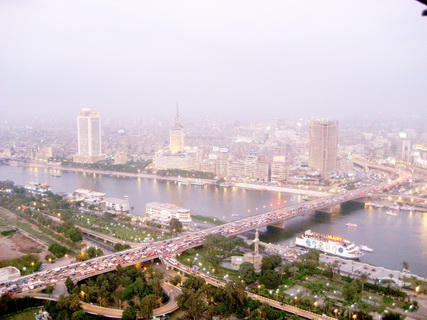Several maritime experts believe that the sector has many opportunities for growth in the ship maintenance and repair sector. There is also a great investment opportunity in establishing a national maritime fleet.
Experts believe that the development of a vision for long-term sustainable development (Vision 2030) contributed to the clarity of investment opportunities in the Egyptian market, which serves the implementation of the vision and contributes to attracting foreign investment.
Mohi El-Din El-Sayeh, dean of the Faculty of Maritime Transport at the Arab Academy for Science, Technology, and Maritime Transport, said that there are many opportunities for growth in the maritime transport sector locally in line with the development plans implemented by the state in many geographic areas.
“There is the Suez Canal Economic Zone (SCZone) which offers great opportunities in the activities of maintenance, ship construction, and fuel supply, next to investment opportunities in the different geographical areas supported by the development projects implemented in accordance with Egypt’s plan for sustainable development 2030,” he explained.
Moreover, he said that there are strong opportunities to invest in ship fuel supply, port infrastructure, and container berth development.
He pointed out that there is an opportunity to invest in the field of shipbuilding, as Egypt needs to form a national maritime fleet, which will give Egyptian goods a competitive advantage in price because of the low cost of transporting them for exportation.
As for investment advantages for Egypt, he said that Egypt has had an advantage since ancient times, as “it is located ashore the Red and Mediterranean Seas and connects them through the Suez Canal, which places it on the world’s main trade line, whether for manufactured goods or raw materials.”
He pointed out that Egyptian ports have a competitive advantage compared to other ports of the region due to their presence on two main maritime locations. “This is evidenced through the investment made by a Chinese company in the port of Dekheila,” he added.
He also added that the availability of trained technical personnel is among the most important advantages of investment in Egypt, as well as the presence of many distinguished administrative experts.
Meanwhile, he highlighted some challenges that need to be addressed to facilitate attracting investment, including bureaucracy challenges.
“The nature of maritime transport is fluctuating because it depends on the movement of global trade, but this risk of fluctuation is governed by laws and legislation that attract investment and ensure the safety of investors,” he said.
For his part, Mahmoud Fikry, head of the planning sector at Port Said Port Authority, said that Egypt’s vision for sustainable development contributed to the clarity of long-term investment plans in various sectors.
Regarding maritime transport, according to long-term plans, there is clarity around the main axes of growth, including the Suez Canal Economic Zone, as well as the state’s intensive investment in basic road infrastructure that will contribute to the growth of port traffic due to the smooth transportation of goods to and from ports.
Ayman El-Nahrawy, head of the training and programmes department at the Arab Institute for Leadership Development of Arab Academy for Science, Technology, and Maritime Transport, said the SCZone is full of investment potential across all sectors.
El-Nahrawy believes that there are investment opportunities in the manufacturing and maintenance of ships and containers in Port Said, northwest of the Gulf of Suez, and a major industrial area in Sharq el-Tafria area.
In the trade and logistics sector, he believes that there are investment opportunities to establish trade and logistics areas east of the Suez Canal, east of Ismailia, the development of Port Said Port (container terminal expansion), and the establishment of a free zone east of the Suez Canal.
In addition, there are plans for the establishment of an area for the manufacture and maintenance of containers and ships, a city for research related to international trade and shipping services, and the development of the industrial zone east of the city Qantara.



